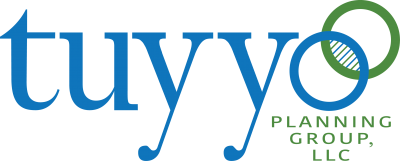OUR PHILOSOPHY:
Planning & Investing

Plan(ning)
Have you ever planned a long family vacation or road trip "to a T" and had it go exactly according to plan? Of course not! That's because, as our journey in life unfolds, our circumstances, decisions, and goals change. If you were to fly from LAX to JFK with a 1 degree deviation along the way, this is the difference between arriving for dinner in New York or landing in Charlotte, NC. We have to continuously be adjusting our course to keep our destination in focus.
We believe strongly that great Financial Planning is no different. It is not a one time, 100-page plan which is out-dated the moment it is delivered. Instead Planning is an ongoing, living, evolving relationship with a planner who understands where you have been, where you want to go, and assists you in making informed decisions when things change.
Essential for establishing the framework for a successful advisor-client relationship, Financial Planning involves building and maintaining trust with one another. We will learn about your goals and planning needs, we will outline what each other's responsibilities are in the planning process, discuss the scope of our relationship, provide constructive outcomes by gathering all important client data including broad and specific goals and objectives, ask about risk tolerance measures, and request documents such as tax returns, wills, trusts, account statements, and pay stubs. Once analyzed, we will help you implement the recommendations and make adjustments over time.

Investing
Tuyyo Planning Group, LLC acknowledges the two major investment management styles facing the industry today: active vs passive (or index). Before we dive into these, of equal importance is ensuring you have sound strategic asset-allocation and the composition of your portfolio is well-diversified.
In simple English...
1. Collect a lot of eggs.
2. Do not put them all in one basket.
3. Make sure you collect eggs of various sizes and colors.
4. Help the longevity of your egg collection by having different eggs which respond to the evolving seasons.
In academia, much has been written about the topic of active vs passive management. While active managers will fight tooth and nail defending their strategy, which aims to outperform a given benchmark, we found that the majority of these cannot do this consistently over time. Add to this the fact that an actively managed fund cost might be anywhere between 0.5% to well over 1%, compared to our low cost index Exchange Traded Funds (ETF) portfolios averaging 0.03% - 0.07%. This one percent difference, over many years, could be worth hundreds of thousands of dollars in lost opportunity costs, sometimes resulting in delayed retirement, or running out of money too soon.
In addition to our passive indexing approach, we are always looking for ways to lower your taxes and optimize your portfolio by using advanced tax-saving strategies through Asset-Location and Tax Loss Harvesting. Depending on your current marginal tax bracket, and time horizon, this strategy could increase your portfolio value by an estimated 0.48% each year, or 15% over 30 years.
